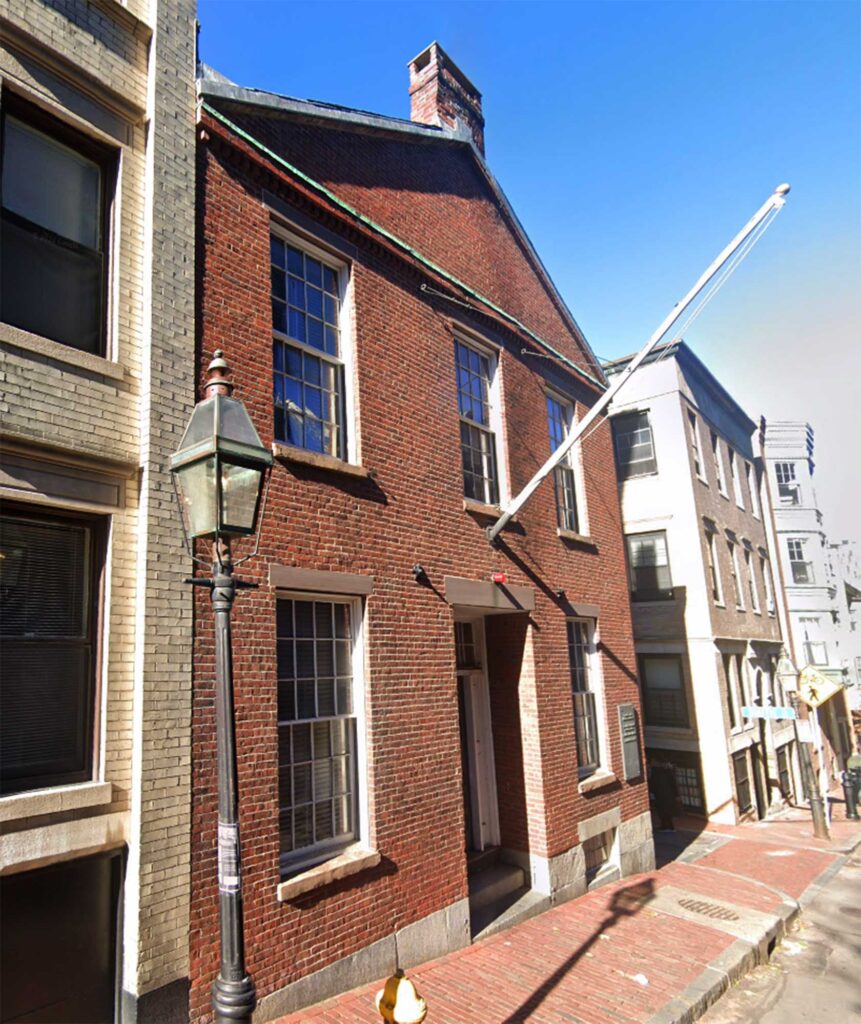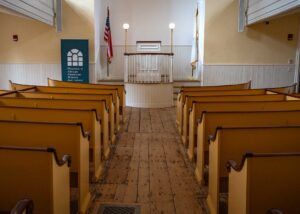Mass. Museum of African American History loses $500,000 in funding after executive order

Back in March, the Institute of Museum and Library Services (IMLS), the government agency responsible for funding museums and libraries across the nation was gutted along with several other agencies by an executive order. The agency’s entire staff was put on administrative leave shortly after.
Museums, libraries and other cultural institutions across the country, including here in Boston, are feeling the ripple effects of these cuts.
Mass.’s Museum of African American History (MAAH), which has locations in both Boston and Nantucket, had a half million-dollar grant awarded to them by the IMLS in 2024 cancelled.
Last June, the IMLS awarded MAAH a grant of $500,000, to be distributed this fiscal year, to help build its organizational capacity. A small portion of the grant was dispensed at that time. However, when IMLS staff were placed on administrative leave, the vast majority of their grant funds were withheld without explanation.
Dr. Noelle Trent, MAAH’s president and CEO said the organization earmarked part of the grant to hire several new staff members.
“That particular grant was an organizational capacity building grant that would give us $500,000 over three years. It was aimed at specifically creating museum educator positions for both campuses, an additional marketing position to support school field trips as well as funding for marketing those school field trips and student and family programming. It is a significant setback,” she said.
Trent said the pain felt is not just about finances for the museum and other organizations affected by cuts like these.

Interior of the Museum of African American History, Boston. PHOTO: COURTESY OF THE MUSEUM OF AFRICAN AMERICAN HISTORY
“It’s more than the loss of funding for us, the executive orders of the White House administration have had an effect on the institution, resulting in a decline of our facility rentals, as well as in some of our visitors and our attendance and admissions. What those executive orders have done is given credence to the thought of de-prioritizing and overlooking African American history. So this move is another move to try to silence the work that has been done here and has been going on for over 60 years,” she said.
Dr. Vedet Coleman Robinson, president and CEO of the Association of African American Museums, of which MAAH is a member said she had heard similar accounts among its members.
“The Institute of Museum and Library Service services was stripped of doing any work. You know, all of their staff, for the most part, was placed on admin leave. Our members were receiving termination letters for grants that they’ve already started work on,” she said.
Coleman-Robinson said usually the grant money is spent long before the money is doled out and the grant acts as more like a reimbursement than a windfall.
“What happens if you were in the middle of a program and, you know, you now have to make payroll, and then, there’s nobody there to help you move those things along so that you can get reimbursed. So now you’re in a deficit. Because the one thing that we always thought as Americans, that the one thing that you can depend on is federal funding, right? So it’s a hard pivot, it’s jarring because nobody expected it,” she said.
The rollbacks on diversity, equity and inclusion along with cuts in funding have Trent and her colleagues nervous.
“The general overall feeling is unease. I think that’s the best way to say that, because what’s happening is unpredictable, right? And so it’s hard to chart a path forward when the rules of the game keep changing, and from day to day, week to week, you don’t know who’s going to be affected, how they’re going to be affected. We anticipated there would be some impact on our grants. We were just hoping that there was a little bit more time for us before we lost the grants or there were restrictions placed on us,” said the museum leader.
Trent said that even though things are tough right now, she counts herself lucky.
“As a leader of this institution, [I’m] very blessed and privileged to be in communities that see the significance of our story and are really urged to action. That is not the case for other small, independent, Black nonprofit museums throughout the country, and so we feel a responsibility to make sure that people know that this is affecting our peers as well all over the country. And so we’re really calling for people to support us in this moment. We would love to raise the money that we’ve lost so we don’t lose a step as we continue to grow and transform. We have made some tremendous strides in the time that I’ve been with the organization, including the launching of our artificial intelligence Frederick Douglass, our Boston family days programming,” she said.
Since the museum has outposts in both Boston and Nantucket, Trent said part being from a revolutionary state means standing up and fighting for what is right.
“We intend to keep growing and to keep highlighting the histories of these communities, because these are not addendums. These are not footnotes of history. They’re very much ingrained in the story of this country. We cannot tell the story of this country without the stories that we represent, and it’s also about the multiracial or interracial groups that came together to fight against slavery and gathered in the meeting house in Boston and the meeting house in Nantucket, and, you know, were galvanized by William Lloyd Garrison and Frederick Douglass and others, and fought for not just the abolition of slavery, but also for what we would call human rights today, for all African Americans, and for all Americans,” she said.
Coleman-Robinson is confident that it will be a fight that Trent, her team and the people of Massachusetts will win.
“I know Dr. Trent and her board and her staff, the ones that are there are going to come up with an amazing campaign. You know, it is something that just rips your heart out. But I also feel that the people of Boston, the people of Massachusetts in general, will really rally around that museum and make sure that you know that museum, as well as the space in that Nantucket,” she said.
Trent wants to thank the people that have already begun to advocate on behalf of the museum or made donations.
“Thank you to everyone who has stepped up already, who have offered words of encouragement, whether via email or social media. We really appreciate it. Know that it has made a difference to us. This is a marathon, not a sprint that we’re in. We hope people will stay with us as we continue to do this good work and to continue to make sure that our story and the story of all of America is not erased. I thank them in advance for their support and their contributions,” she said.
Coleman-Robinson said there is hard but necessary work to be done to ensure that MAAH and other institutions like it will be around for generations to come.
“Right now, it feels like we could be in 1760 you know, 1860 or 1960 but I’m not trying to be there. So we have a responsibility to make sure that by the time we get to 2060 the things that we’re doing today will impact at a greater level what’s happening tomorrow. We want our grandkids and great grands to be able to turn to us and say, ‘Well, I know that you were doing good.’ I want to be able to see that we were brilliant people, and we were making sure that we were not just preserving culture, but preserving a people,” she said.






